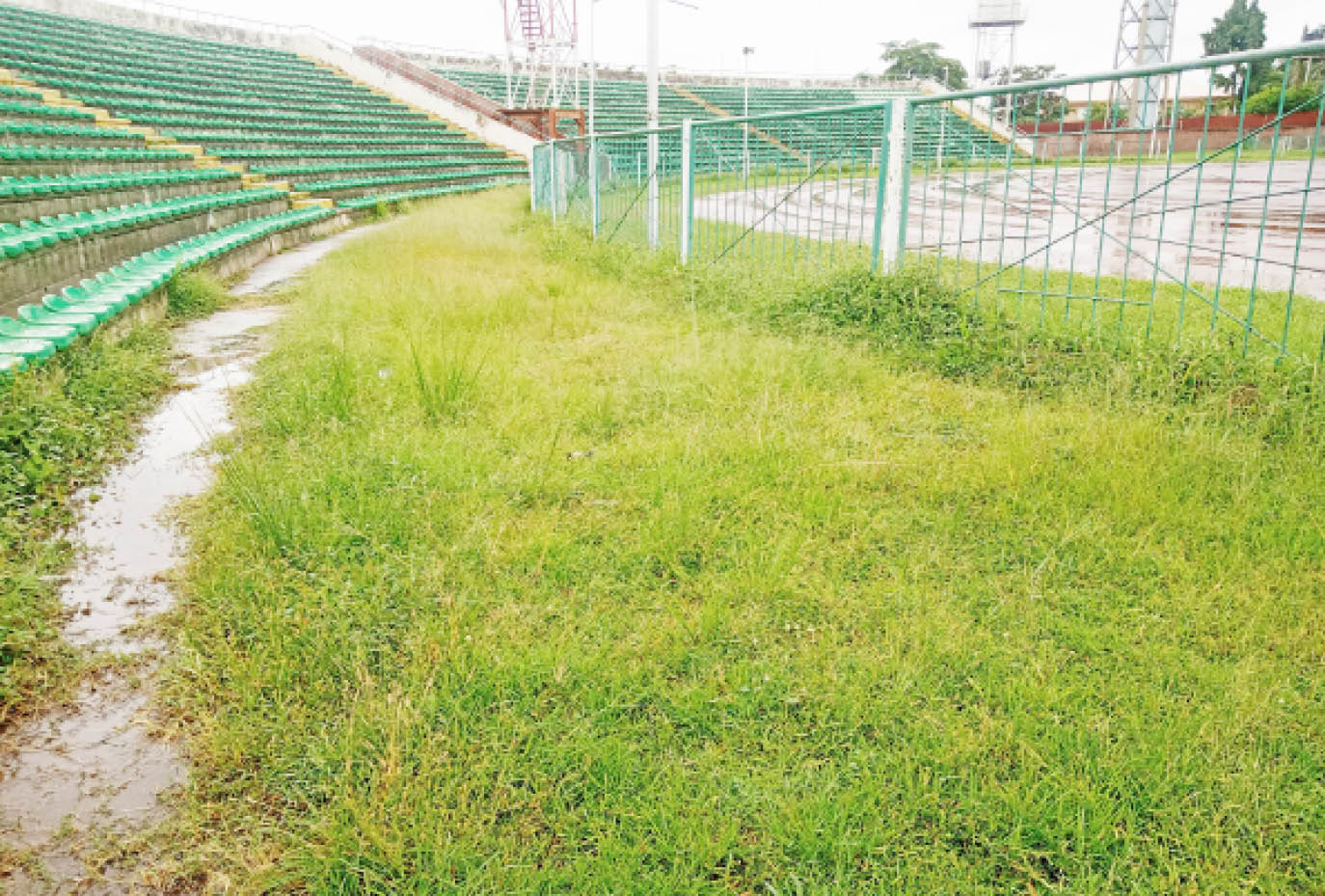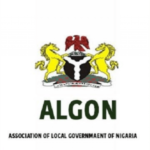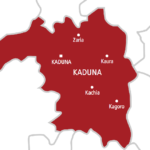David Ngobua (Abuja), Hassan Ibrahim (Bauchi), Zahraddeen Yakubu Shuaibu (Kano), Abdulkadir Shehu (Kaduna), Jeremiah Oke (Ibadan), Ibrahim Kegbegbe (Lagos)
Nigeria has etched her name in gold among the highly rated sporting nations of the world. The accomplishments are made possible due to the exceptional performances of its athletes at international competitions.
Experts however say, to continue to compete favourably at the global stage, there is the need to have standard sporting facilities where abundant talents can be discovered and nurtured to stardom. This explains why Nigeria boasts of over 62 stadia constructed by both the federal and state governments.
Through available records, the oldest stadium in Nigeria is the famous Onikan Stadium Lagos built in 1930. The Lagos State government has remodelled and named the stadium after the first Military Governor of the state, Brigadier-General Mobolaji Johnson. The 5,000-capacity stadium is now called Mobolaji Johnson Arena. Already, it has hosted some international matches.
Considering the importance attached to sports development, almost every state in Nigeria has built at least one stadium where sporting activities are staged. In states like Delta, Rivers, Lagos, Ogun, Oyo, one can find at least three stadia of international standard. For instance, Delta State alone has well constructed mini-stadiums like Stephen Keshi Stadium Asaba, Warri Township Stadium, Sapele Stadium, Jay-Jay Okocha stadium and Ughelli Township Stadium.
And in no definite order, the most prominent of the over 62 stadia are MKO Abiola National Stadium Abuja, National Stadium Surulere Lagos, Godswill Akpabio stadium Uyo, Teslim Balogun stadium Lagos, Nnamdi Azikiwe stadium Enugu, Ahmadu Bello stadium Kaduna, Yakubu Gowon stadium Port-Harcourt, Tafawa Balewa stadium Bauchi, Samuel Ogbemudia stadium Benin City, Lekan Salami stadium Ibadan, Sani Abacha stadium Kano, U.J Esuene stadium Calabar, MKO Abiola stadium Abeokuta, Stephen Keshi stadium Asaba, Samson Siasia stadium Yenagoa, Pantami stadium Gombe, Muhammadu Dikko stadium Katsina, Aper Aku stadium Makurdi, Adokiye Amiesimaka stadium Port-Harcourt and a host of others.
However, before now, six of the above listed stadia, Abuja National stadium now MKO Abiola stadium Abuja, National stadium Surulere, Lagos, Liberty stadium Ibadan now Obafemi Awolowo stadium Ibadan, Nnamdi Azikiwe stadium Enugu, Tafawa Balewa stadium Bauchi and Ahmadu Bello stadium Kaduna were funded and managed by the federal government. Each of the six geo-political zones had one federal government owned stadium for sports development at the zonal level.
At the moment, the federal government is responsible for only three of the six stadia mentioned above as Nnamdi Azikiwe stadium, Tafawa Balewa stadium and Ahmadu Bello Kaduna have been handed over based on the requests of the states where they are located.
So, the remaining federal government-owned stadia are MKO Abiola national stadium Abuja, National stadium Surulere, Lagos and Obafemi Awolowo stadium Ibadan. These stadia still receive yearly budgets from the federal government for maintenance.
However, Daily Trust on Sunday investigation revealed that despite government funding, most of these hitherto beautiful edifices are a now a shadow of themselves. Although the stadiums are still standing, some are in such deplorable conditions that they no longer serve the purposes for which they were constructed.
In Abuja, Nigeria’s capital city, is the once magnificent MKO Abiola stadium built for the 2003 All Africa Games which Nigeria hosted and won for the first and only time. The 60,000-capacity stadium which gulped over $360m of tax-payers money has been left to decay as the national football teams still wander about in search of venues to play international matches.
The MKO Abiola national stadium main bowl became so deplorable that in 2020, Africa’s richest man, Alhaji Aliko Dangote, had to bankroll the ongoing renovation of the pitch with N1bn. However, after several deadlines, the renovation work is yet to finish.
It is for this reason that on Wednesday, October 6 and Thursday, October 7, the Falconets and Super Eagles played their World qualifiers against the Central Africa Republic (CAR) at the Mobolaji Johnson Arena and Teslim Balogun stadium in Lagos.
Apart from the Indoor Sports Hall located inside Package B of the MKO Abiola national stadium where indoor games like badminton, basketball, handball and volleyball are played regularly and the lawn tennis courts, which is a beehive of activities, the rest of the facilities are wasting away.
Since they were constructed, hockey pitches, swimming pool centre, the velodrome, rugby and baseball courts have not been patronised sufficiently. Events hold sparingly at these venues.
Despite the fact that the Minister of Sport’s second office is at the Package A of the MKO Abiola national stadium, it has not stopped weeds from taking over the surroundings.
The environment is so unkempt that the splendour of the facilities is better appreciated only in the dry season when nature itself dries up the shrubs that hide the once enchanting scenery.
When contacted, the Manager of MKO Abiola National stadium, Bosun Obanla, declined to comment on the deplorable state of the stadium as he insisted that our correspondent must write to the Permanent Secretary in the Federal Ministry of Sports for approval for him to speak.
Elsewhere, even as the National Stadium Surulere, Lagos, is under renovation courtesy of philanthropist Chief Adebutu Kensington, nobody can say exactly when the stadium will return to life.
Consequently, our correspondent has observed that the National Stadium Surulere, which hosted several international competitions including the 1980 African Cup of Nations final, the 2000 African Cup of Nations final, and FIFA World Cup qualifying matches, has become a ghost city.
The multi-purpose stadium which was shut down for renovation last year is in a deplorable state as renovation works seem to have stopped.
It will be recalled that the Minister of Youth and Sports Development, Sunday Dare, in March said that the renovation will be completed in June.
“The on-going rehabilitation work at the Moshood Abiola National Stadium in Abuja, undertaken by Alhaji Aliko Dangote and the National Stadium in Surulere, Lagos, courtesy of Chief Adebutu Kensington, will soon be completed.
“The Surulere stadium was abandoned for so many years. We started by ejecting illegal occupants, cleared illegal structures to bring out the beauty of the edifice which is comparable to any top stadium in the world.”
“By the schedule of the contractors, the rehabilitation will be completed by June,” Dare had said in a statement by his Special Adviser (Media), John Joshua-Akanji.
However, it is unclear when the renovation of the stadium in Surulere would be completed.
An athlete, Taiwo Olanrewaju, said the complete renovation of the stadium will return it to its old glory.
“This stadium is the pride of Nigeria. This was home to our national teams for many years. It is a treasure that we need to revive and restore to its glory,” he pleaded.
He said athletes have been denied the opportunity to use the stadium to prepare for competitions.
“This stadium has many courts and gyms for various sporting competitions. I am not sure there is any other stadium in Nigeria that has as many courts, gyms and other facilities like this. If the stadium is well renovated, it can compete with other top stadia in the world,” he added.
The sight of the Sani Abacha Stadium Kano which served as one of the isolation centres at the height of the COVID-19 pandemic is also pathetic. Having suffered neglect even before the outbreak of the coronavirus, the stadium is presently struggling to return to shape.
Our correspondent observed that the tents which took over the playing field are now making way for normal sporting activities to resume on the artificial-pitch. However, other facilities in the stadium are being used for other purposes.

Aside the fact that most of the courts for out-door games have been converted into car parks by business owners in the Kwari textile market located near it, the stadium appears to be under the control of urchins who have found a safe haven for drug-related crimes.
“These drug addicts are our problem. They don’t allow people to come into the stadium. Fans often fear that they may be attacked and their properties stolen from them. They are used to this place. They come here purposely to hide and smoke,” said a concerned resident.
It was also gathered that apart from the main bowl which for the past two seasons was the adopted home ground of Kano Pillars for their Nigeria Professional Football League (NPFL) matches, almost all the facilities at the Ahmadu Bello stadium Kaduna are in comatose.
The tennis courts, swimming pool and the athletes’ hostel at the once glittering edifice are in pathetic conditions. Electricity supply to the stadium has been cut off, leaving most parts of the stadium in complete darkness.
A worker at the stadium who spoke to our correspondent on condition of anonymity said financial support from government is no longer coming as and when due but everything humanly possible is being done to keep the place going.
“The Kaduna State government is now responsible for the maintenance of the stadium. For now, we are still expecting financial support from the government. We are taking responsibility for the maintenance of the facilities. However, we don’t know how soon the government will step in,” he lamented.
From Bauchi, the state government in 2019 embarked on the rehabilitation and renovation of the Abubakar Tafawa Balewa stadium to fix the dilapidated structures, poor pitch and other facilities to return one of the best stadia in the Northeast region to life but less than two years after the facelift, the stadium is again in a bad condition.
Due to poor maintenance, the stadium is now battling with both structural and environmental challenges. Apart from the main football pitch, facilities for games like handball, basketball and hockey are in bad shape.
While some of the facilities are used as training ground for youth football teams, others are vandalised right under the nose of people responsible for their maintenance and protection.

The conference halls and offices that once shone brilliantly when the stadium hosted group matches of the 2009 FIFA U-17 World Cup have all faded as damaged furniture litter the offices.
In addition, most of the walls of the buildings in the stadium are crumbling just as there is nothing cosy about the VIP zone. Doors, windows and burglaries have been vandalised or damaged, forcing the management to shut most of the gates into the stadium.
When contacted, the Manager of the stadium, Malam Mustafa, who had agreed to grant our correspondent an interview on the state of the facility declined to do so as he insisted that he was not permitted to speak to the press.
In addition, all efforts to get the reaction of the state Commissioner of Sports and Youth Development, Hon. Adamu Manu Soro, proved abortive as he neither picked calls nor responded to text messages sent to him at the time of filing the report.
Our correspondent in Ibadan also reported that the once captivating Liberty stadium now called Obafemi Awolowo Stadium Ibadan is an eyesore.
Commissioned in 1960, the stadium, aside football pitch in the main bowl with floodlights and underground drainage, also boasts of indoor sports halls, swimming pool as well as courts for tennis, volleyball, handball, basketball and hockey.
The stadium had hosted many international matches like the first ever boxing world title fight in Africa on August 10, 1963, African Cup of Nations in 1980, FIFA U-20 World Youth Championship in 1999. In 2015, former President Goodluck Jonathan renamed the stadium after late sage, Chief Obafemi Awolowo. And it is one of the three stadia that is still funded by the federal government.
However, as if it is yet to feel the federal government’s benevolence, the stadium is in dire need of urgent attention. From the main bowl, the tartan track, to the swimming pool, a first-time visitor to the stadium would mistake it for an old theatre of war.
Our correspondent who visited the stadium recently observed that roofs of many of the structures, including the administrative building have been removed while many shops and offices at the complex have been rented out to beer parlour operators.
The main football pitch which would have kept the arena busy with football matches has been excavated for renovation work which is yet to commence.
Mr. John Joshua-Akanji, the Special Adviser on Media to the Minister of Sports, told Daily Trust on Sunday that the edifice has not been abandoned. He explained that the Ministry of Sports is considering public private partnership arrangement to return the stadium to life.
“The football pitch and tracks have been removed for replacement but work is yet to commence. The Ministry of Sports is looking for public spirited individuals or organisations to bankroll the renovation as in the case of MKO Abiola National Stadium and National Stadium Surulere, Lagos.
“So based on the commitment on the part of the Minister of Sports, renovation of the Obafemi Awolowo stadium will soon commence in earnest,” he assured.
The appalling state of the stadia monitored by our correspondents represents the present condition of most of the stadia scattered across the country. The once beautiful edifices are also victims of Nigeria’s poor maintenance culture, an unfortunate situation that has continued to impact negatively on athletes’ development.

 Join Daily Trust WhatsApp Community For Quick Access To News and Happenings Around You.
Join Daily Trust WhatsApp Community For Quick Access To News and Happenings Around You.



